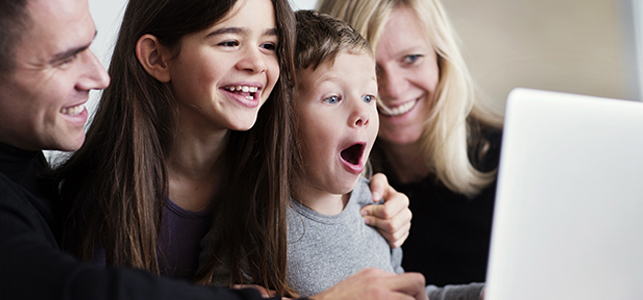
Helping children cope with cancer during a global pandemic by connecting through virtual visits
While sports, parties, and other activities paused for the pandemic – cancer did not. Kids and young adults continued to be diagnosed with malignancies and blood diseases. They continued to fight for their lives, participate in treatment, take medication and live a life of uncertainty, unpredictability, social distancing, social isolation, and fear and worry about what might be next.
Helping kids realize their strength and resilience
As a pediatric psychologist, I have the privilege of working with kids and young adults with cancer and other chronic illnesses who are traveling a marathon of life that most of us will never truly understand. Their experiences require them to be strong, resilient, creative and energetic – and it’s my job to help them realize this potential. In the midst of a global pandemic, it was imperative that emotional and psychological support continued for these children.
I frequently describe myself and our entire psychology team as “Dr. Fun.” Pre-COVID, I carried a big bag around the hospital and clinic with games, arts and crafts, coloring sheets and other fun goodies. My first thought when care began changing due coronavirus was, “How are we going to survive in a world of telehealth?”
It’s been about six months since our psychology team began caring for kids and families virtually and I must say that we absolutely love it. While we certainly miss the hands-on activities we did pre-COVID, we’ve creatively brought new and innovative approaches that mirror our pre-COVID therapeutic experiences. It just required a little ingenuity.
Convenient, family-centered care – a silver lining in challenging times
What is the silver lining of this pandemic for my team and me? Delivering evidence-based, family-centered care in a non-medical environment, most often in the comfort of the patients’ own homes, has been such a rewarding experience. It has allowed our patients and families to be more comfortable and focused, and led to tremendous growth. Engagement is higher and we’re now able to connect more frequently with reduced access barriers. Patients and families don’t need to work around complex schedules, identify transportation or drive long distances to see us. They just click on a link! And, our sessions still maintain the fun and laughter we experienced in the office.
Increased flexibility with scheduling allows us to serve more patients, siblings, cancer survivors, and parents. We’re also providing more family-centered care with the ability to have multiple family members participate in psychological support services at one time regardless of their physical locations. These days, it’s not uncommon for us to have a Zoom session with five or more family members on their own devices, so we see everyone! It’s also super cool to see a new side of their daily lives. Families have welcomed us into their homes through telehealth and I am forever grateful to see them thrive despite the uncertainties all around us.
Meeting tech-savvy kids and teens where they are
In spite of the challenges of the pandemic, we’ve determined that we can support and reach more patients and families using innovative technology that is readily accepted by our tech-savvy children, adolescents, and young adults. They are very much used to communicating through virtual mechanisms. Now we’re meeting them on their level. While the initial transition to telehealth came in the midst of a tumultuous time, our psychology service is stronger and serving even larger populations of patients and families as a result.
Our pre-COVID lives are long gone and we wonder what post-COVID life will be like when the world is no longer battling this novel disease. Will we ever return to our old normal? What is normal though, really? Perhaps we can learn something from these experiences that will better equip us to live our daily lives with strength, resiliency, and creativity.
Finding your own silver lining
I challenge you to find the silver lining in your life – turn those negatives into a positive. And always remember that even the hardest of days can be among the best days, because that’s when champions are made.
